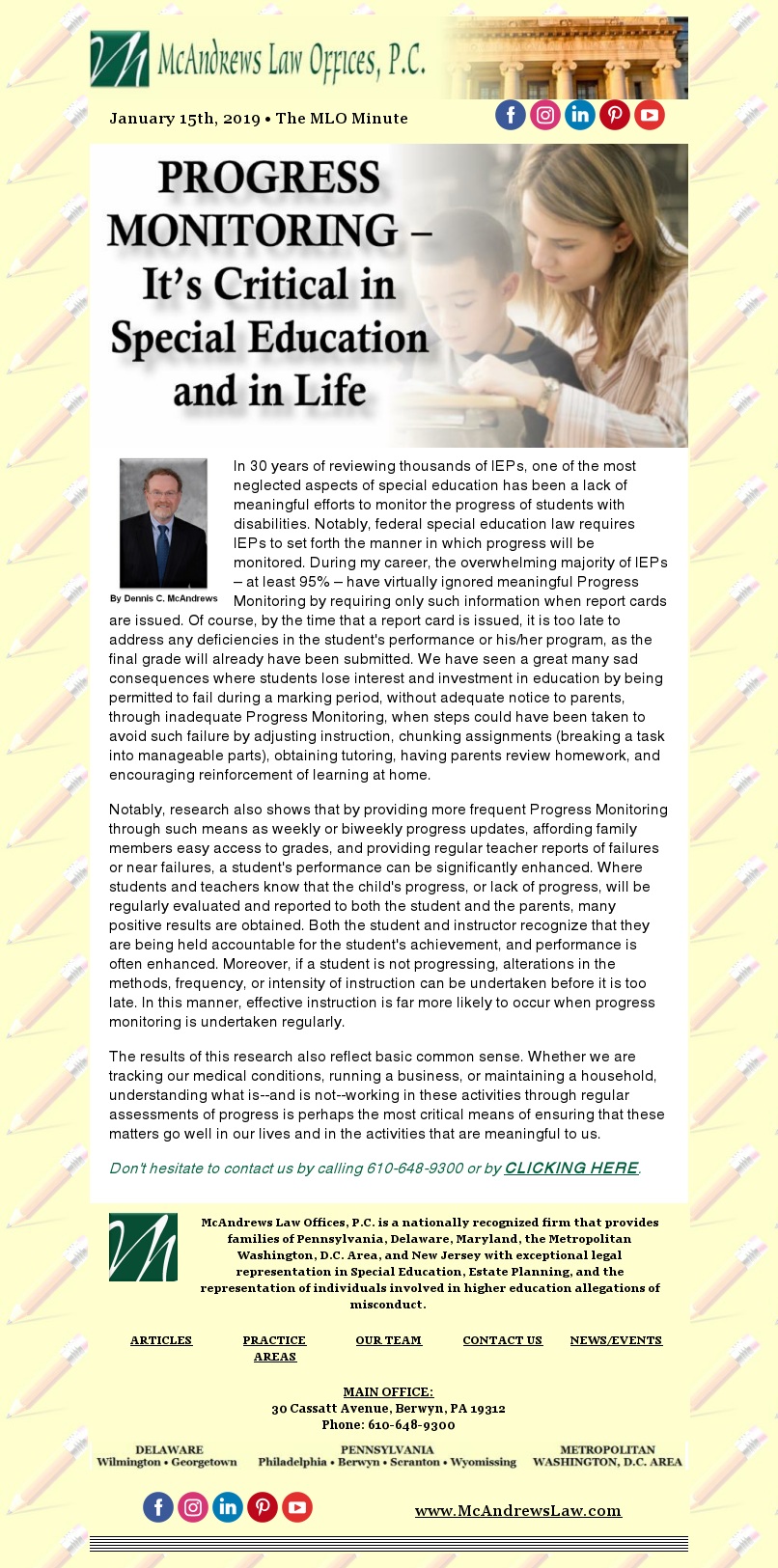January 2019
By Dennis McAndrews, Esq.
In 30 years of reviewing thousands of IEPs, one of the most neglected aspects of special education has been a lack of meaningful efforts to monitor the progress of students with disabilities. Notably, federal special education law requires IEPs to set forth the manner in which progress will be monitored. During my career, the overwhelming majority of IEPs – at least 95% – have virtually ignored meaningful Progress Monitoring by requiring only such information when report cards are issued. Of course, by the time that a report card is issued, it is too late to address any deficiencies in the student’s performance or his/her program, as the final grade will already have been submitted. We have seen a great many sad consequences where students lose interest and investment in education by being permitted to fail during a marking period, without adequate notice to parents, through inadequate Progress Monitoring, when steps could have been taken to avoid such failure by adjusting instruction, chunking assignments (breaking a task into manageable parts), obtaining tutoring, having parents review homework, and encouraging reinforcement of learning at home.
Notably, research also shows that by providing more frequent Progress Monitoring through such means as weekly or biweekly progress updates, affording family members easy access to grades, and providing regular teacher reports of failures or near failures, a student’s performance can be significantly enhanced. Where students and teachers know that the child’s progress, or lack of progress, will be regularly evaluated and reported to both the student and the parents, many positive results are obtained. Both the student and instructor recognize that they are being held accountable for the student’s achievement, and performance is often enhanced. Moreover, if a student is not progressing, alterations in the methods, frequency, or intensity of instruction can be undertaken before it is too late. In this manner, effective instruction is far more likely to occur when progress monitoring is undertaken regularly.
The results of this research also reflect basic common sense. Whether we are tracking our medical conditions, running a business, or maintaining a household, understanding what is–and is not–working in these activities through regular assessments of progress is perhaps the most critical means of ensuring that these matters go well in our lives and in the activities that are meaningful to us.





